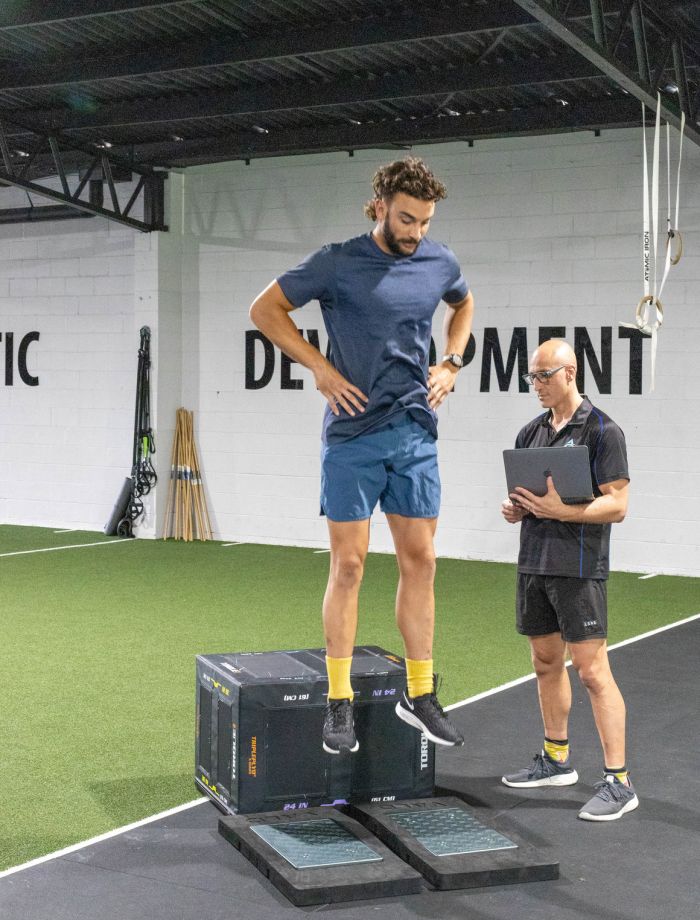Why Every Athlete Needs a Physio: Performance, Prevention, and Recovery

Behind every high-performing athlete is a support system – coaches, nutritionists, trainers, and increasingly, a physiotherapist. While many people only think to visit a physio after an injury, the reality is that physiotherapists play a much broader and more proactive role in an athlete’s journey. From helping you move more efficiently, to identifying injury risks before they become serious, to accelerating recovery and return-to-play, physios are critical to performance longevity. Whether you’re an elite competitor, a weekend warrior, or someone chasing personal fitness goals, a physio can be your edge, helping you stay stronger, safer, and one step ahead.
1. Performance: Fine-Tuning the Body to Go Further, Faster
Physiotherapists are like performance engineers for the human body. They assess how you move, how you generate power, and how well your body supports repetitive load. Through a combination of movement screening, strength and flexibility testing, and postural analysis, they’re able to detect subtle biomechanical inefficiencies – things like an underactive glute, a tight hip, or shoulder instability – that could be limiting your performance without you even realising it.
For example, a runner may experience tight calves or sore knees not because of poor technique, but because of weak hips or poor ankle mobility. A physio will not only spot this but create a plan to correct it through mobility drills, strength work, and neuromuscular retraining.
This kind of performance tuning doesn’t require you to train harder; it helps you train smarter. Physios help you move more efficiently, reduce energy leaks, and build resilience into your system. Over time, this leads to measurable improvements in speed, strength, coordination, and sport-specific technique.
2. Prevention: Catching Issues Before They Become Injuries
One of the biggest advantages of regular physio sessions is early detection. By identifying risk factors such as poor movement patterns, muscle imbalances, or overtraining habits, physiotherapists can stop injuries before they happen.
Let’s say you’re ramping up training for an event. Without the right support, you could easily overload your Achilles tendon or strain your lower back, not because you’re unfit, but because your load increased faster than your body could adapt. A physio helps you manage
these transitions intelligently, guiding you through load progression, rest and recovery protocols, and prehab exercises tailored to your sport.
They also teach you how to listen to your body. When is that “tightness” something to work through, and when is it a sign to back off? This education, combined with practical exercises, taping techniques, and tailored mobility plans, helps reduce the risk of strain, overuse, or fatigue-related breakdowns.
Prevention may not feel urgent until you’re sidelined. Seeing a physio regularly is like an insurance policy for your body.
3. Recovery: A Smarter, Safer Return to Sport
Injuries are frustrating, but with the right guidance, recovery doesn’t have to derail your progress. Physiotherapists play a critical role in ensuring athletes recover properly and return to sport stronger than before.
Rehab is not one-size-fits-all. Physios consider your sport, injury type, training style, and long-term goals to build a structured, progressive plan. This typically involves a mix of hands-on treatment (e.g., joint mobilisation, dry needling, massage), targeted strength and conditioning, movement retraining, and gradual return-to-play protocols.
One key benefit? They know how to balance healing with movement. Rest alone can lead to deconditioning or compensations. Physios ensure you’re staying active in safe ways, often working with coaches or trainers to keep you involved with your sport throughout the process.
Perhaps most importantly, they help prevent recurrence. Most repeat injuries stem from incomplete rehab or premature return to sport. With a physio overseeing your recovery, you’ll know exactly when you’re ready, not just symptom-free, but functionally prepared.
4. The Mental Edge: Knowledge, Confidence, and Control
In sport, confidence is everything, and physiotherapy helps build it in unexpected ways. When you understand what’s happening in your body, you’re less likely to panic at every niggle or flare-up. Physios empower athletes with the why behind their pain and the how to address it.
This education gives athletes control over their training and recovery. You’ll learn how to self-manage tightness, identify signs of overtraining, and implement preventative strategies before things escalate. That autonomy builds resilience, physically and mentally.
Knowing you have a trusted physio in your corner also boosts morale. Whether it’s reassurance after a strain, guidance before a competition, or a plan during a setback, having
someone who understands your body and your sport helps reduce stress and keep you focused on your goals.
5. Ongoing Support: A Long-Term Investment in Longevity
Working with a physio isn’t just for when things go wrong; it’s about keeping things going right. Many athletes see their physio on a monthly or seasonal basis for performance check-ins, recovery maintenance, and training support.
They might adjust your mobility work based on the current phase of your training, recommend modifications if you’re feeling tight or overloaded, or support recovery between competitions with manual therapy or targeted sessions.
This ongoing relationship becomes especially valuable as you get older, increase your training load, or begin specialising in a sport. The better your physio knows your body, the more effectively they can help you stay in the game, not just now, but long-term.
Thanks for reading. Whether you’re an athlete, coach, or simply someone passionate about performance, we hope this gave you a clearer look into the value of physiotherapy in every stage of the athletic journey.
